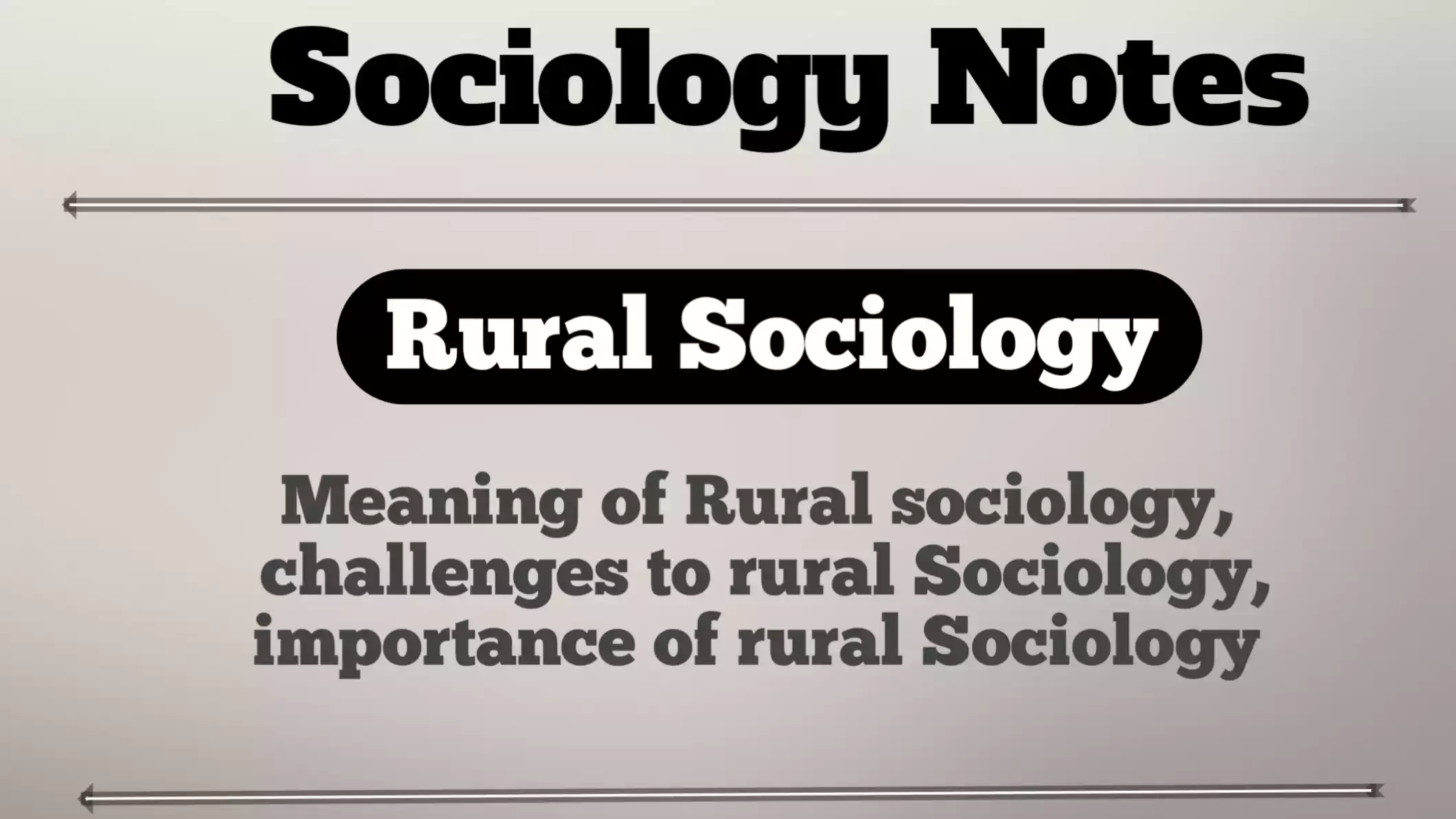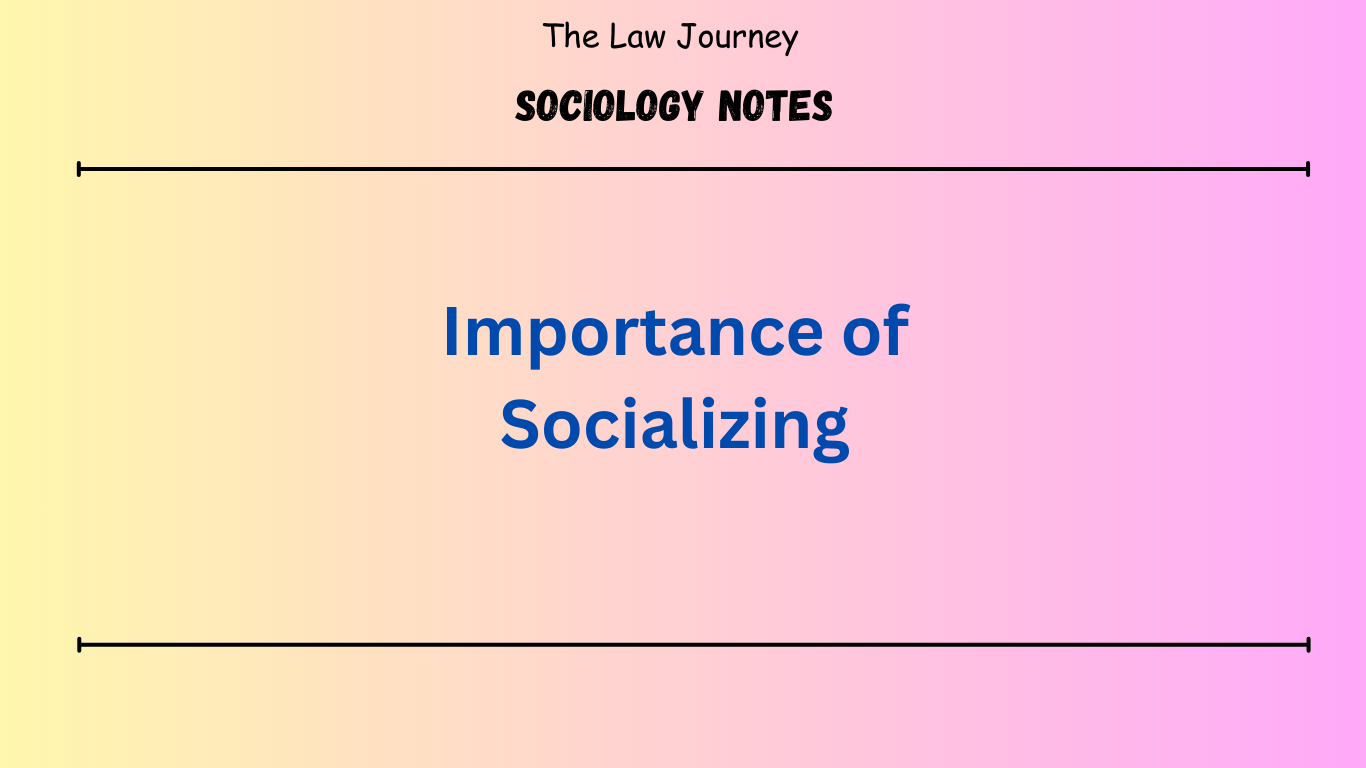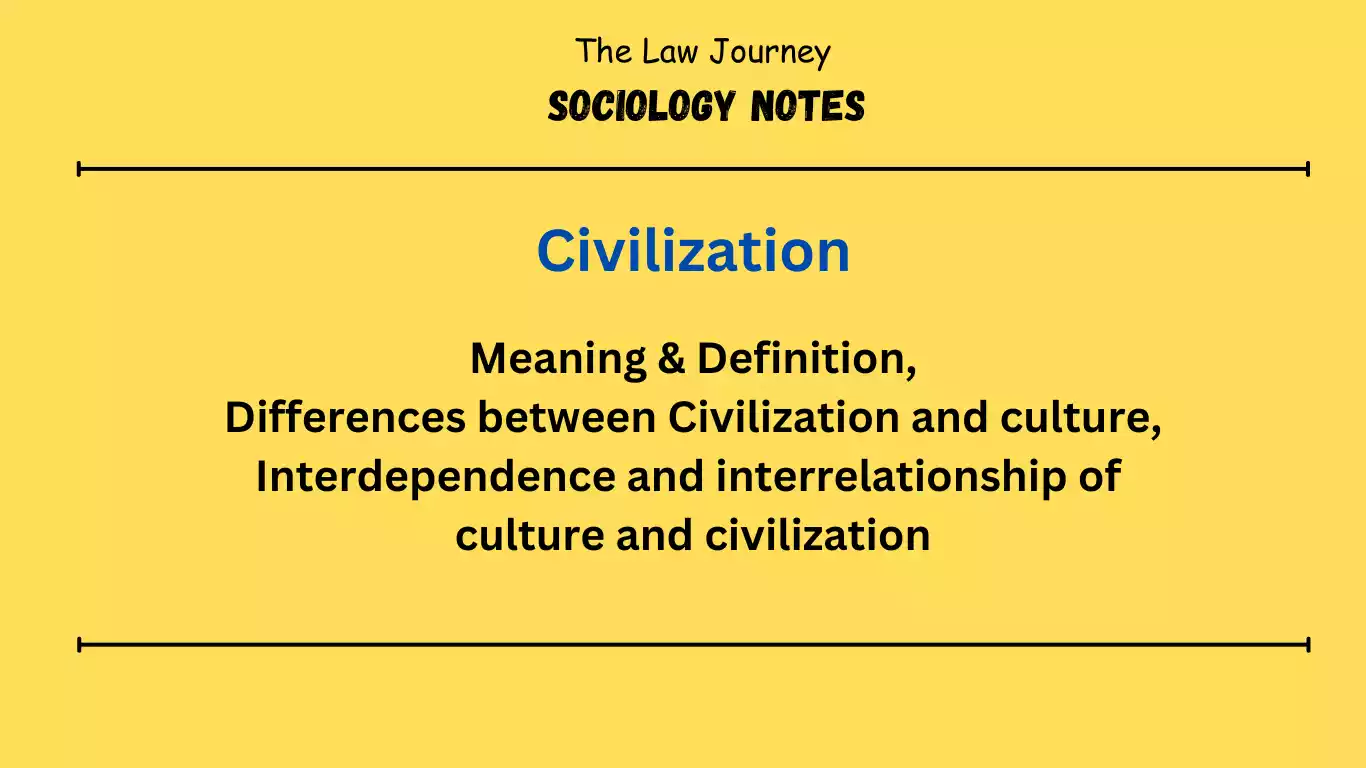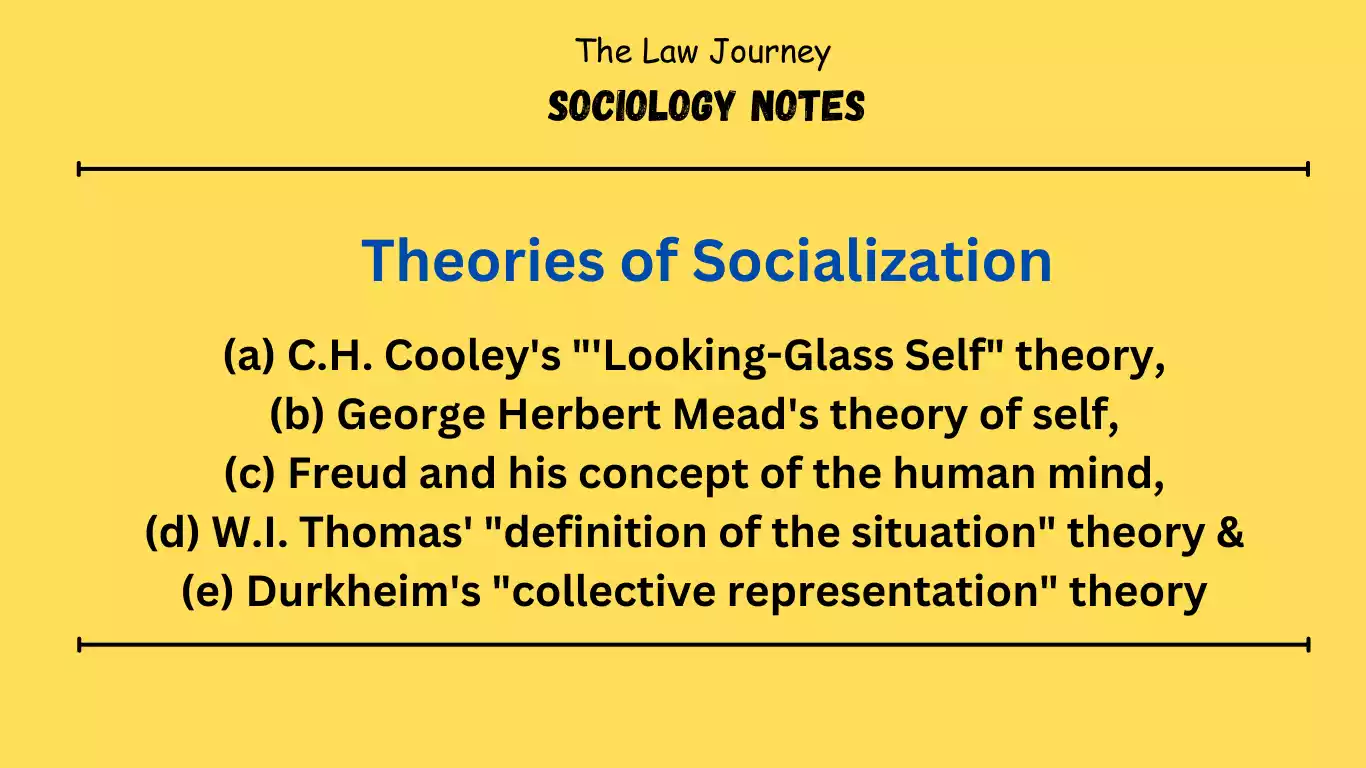Rural sociology is a specialized field of sociology. As the name suggests, it is a village or rural society. It is a systematic and scientific study of rural society. The majority of people on earth live in villages and rural areas. They follow somewhat different career and life patterns than those living in urban areas. Their behaviour, way of life, and beliefs are conditioned and deeply influenced by their rural environment. A specialised branch of sociology called, Rural Sociology, has, therefore, emerged to study the rural society.
Definition of Rural Sociology
Different sociologists have defined rural sociology in different ways. A few definitions may be examined here.
- Sanderson says that “Rural sociology is the sociology of rural life in the rural environment”.
- Bertand says that in its broadest sense, “Rural sociology is that study of human relationships in rural environment”.
- F. Steward Chapin defines rural sociology as follows: “The sociology of rural life is a study of the rural population, rural social organisation and the social processes comparative, in rural society”
- A.R. Desai says: “Rural sociology is the science of rural society.
It is the science of the laws of development of rural society.” From the above definition, it is clear that rural sociology studies the social interactions, institutions, activities, and social changes that occur in rural societies. Examines rural social organization, its structure and structure. You can gain knowledge about social phenomena in rural areas and contribute to the development of rural society.
Origin of Rural Sociology
Rural sociology is comparatively a new branch of sociology. It was first originated in the United States of America. It has taken more than half a century to become established as a distinct academic field or professional study. The main contributors to the development of rural sociology are-Charles Sanderson, Burtherfield, Ernest Burnholme, John Morris Gillin, Franklin H. Giddings, and Thomas Nixon Carver. It was President Roosevelt who appointed the Country Life Commission in 1908 and greatly promoted the development of rural sociology.
This committee’s report promoted research on rural societies. In 1917, the Division of Rural Sociology was established by the American Sociological Association. In 1919, under the chairmanship of Drs. C.J. Galpin established the Department of Rural Sociology. The Great Depression of 1930 provided further impetus to the growth of rural sociology. In 1937 the Rural Sociology Society was founded. It began with the publication of the journal Rural Sociology, which published the results of rural sociology research.
C.J. Galpin of the University of Wisconsin developed techniques for defining and delineating rural communities. His approach is still very popular today World War II provided a further stimulus to the development of rural sociology. The destruction caused by the war necessitated rebuilding. Reconstruction work further developed science. By 1958, there were approximately 1,000 professional rural sociologists in America.
Rural sociology transcended America’s borders and became popular in Europe. The European Society of Rural Sociology was established in 1957, and a similar organization was established in Japan. In developing countries, the role of rural sociologists is primarily in the applied field of more effective planning and implementation of rural community development programs.
Scope or Subject of Rural Sociology The scope or subject of rural sociology is essentially the study of rural society in all its complexities. According to Rowley and Nelson, “The purpose of rural sociology is to describe and analyze the progress of different groups existing in rural environments.”
Challenges to Rural Sociology
The main challenges of rural sociology are: They are:
(1) Rural societies and rural issues: Includes the characteristics and nature of rural societies and their problems.
(2) Social life in the countryside: This includes various aspects of rural people.
(3) Rural social organization: This includes the study of various rural social organizations and institutions, including the family and marriage.
(4) Rural social institutions and structures: This includes the study of doctrines, customs, traditions, values, morals, customs, practices, and various political, economic, religious, and cultural institutions.
(5) Rural planning and reconstruction: Rural sociology is very practical. Therefore, planning and rehabilitation of rural areas is also a major task of rural sociology.
(6) Social change and social control in rural social systems: This section examines the influence of cities on rural life. The mechanisms of social control in rural societies will also be considered.
(7) Religion and Culture in Rural Society: Religion plays an important role in rural society. The culture of rural communities has distinctive features. These fall within the realm of rural sociology.
(8) Rural social processes: Various social processes such as cooperation, competition, integration, isolation, and differentiation that occur in rural societies are also studied in rural sociology.
(9) Differences between urban and rural societies: The study of rural societies also includes differences between urban and rural societies.
Importance of Rural Sociology
The practical value of the study of rural sociology is widely recognised today. As long as the villages and the rural society assume importance, the rural sociology shall continue to acquire importance. The value of rural sociology can be understood by the following points:
(1) Majority of the population in rural areas: The world’s population lives in rural areas rather than in cities. More than two-thirds of the world’s population lives in villages. In India alone, more than 50 million people (more than 75% of the total population) live in her more than 500,000 villages. Villages are the foundation of society. Rural sociology is essential for studying the majority of the population.
(2) Close relationship between humans and the land: Humans are born of the land, and their entire culture depends on the land. Land is essential to human life. Progress begins in the village. The type of country partly determines the type of society and opportunities for human development. This close relationship between humans and land is recognized by economists and political scientists.
(3) Psychological approach to rural life: Rural progress, rural reconstruction or improvement of rural society is possible only if people have the right ideas about rural life and problems. Rural sociology touches on rural psychology to better understand rural people and their societies.
(4) Villages and rural life form the source of population. Cities usually arise from towns and villages. Without a rural background, cities cannot suddenly appear. As villages improve and become more densely populated, they become towns and cities. Therefore, it is the village population that forms the source of urban life.
Related Post
- moot court memorial maker
- Concept of Social Groups in Sociology
- RTI notes
- Political Notes
- Legal History Notes
- Law of Torts notes
- law project maker
Definition of Rural Branch of Sociology ?
Sanderson says that “Rural sociology is the sociology of rural life in the rural environment”.
Bertand says that in its broadest sense, “Rural sociology is that study of human relationships in rural environment”.
Challenges to Rural Sociology ?
The main challenges of rural sociology are: They are:
(1) Rural societies and rural issues: Includes the characteristics and nature of rural societies and their problems.
(2) Social life in the countryside: This includes various aspects of rural people.
(3) Rural social organization: This includes the study of various rural social organizations and institutions, including the family and marriage.
Importance of Rural Sociology ?
(1) Majority of the population in rural areas: The world’s population lives in rural areas rather than in cities. More than two-thirds of the world’s population lives in villages. In India alone, more than 50 million people (more than 75% of the total population) live in her more than 500,000 villages. Villages are the foundation of society. Rural sociology is essential for studying the majority of the population.
Reference Books
- A Dictionary of Sociology by John Scott
- C.N. Shankar Rao – Principle of sociology with an introduction to social thoughts
- Introduction to Sociology by Anthony Giddens
- Sociological Theory by George Ritzer
- Handbook of Indian Sociology by Veena Das
- Social Change in Modern India by M N Srinivas

















